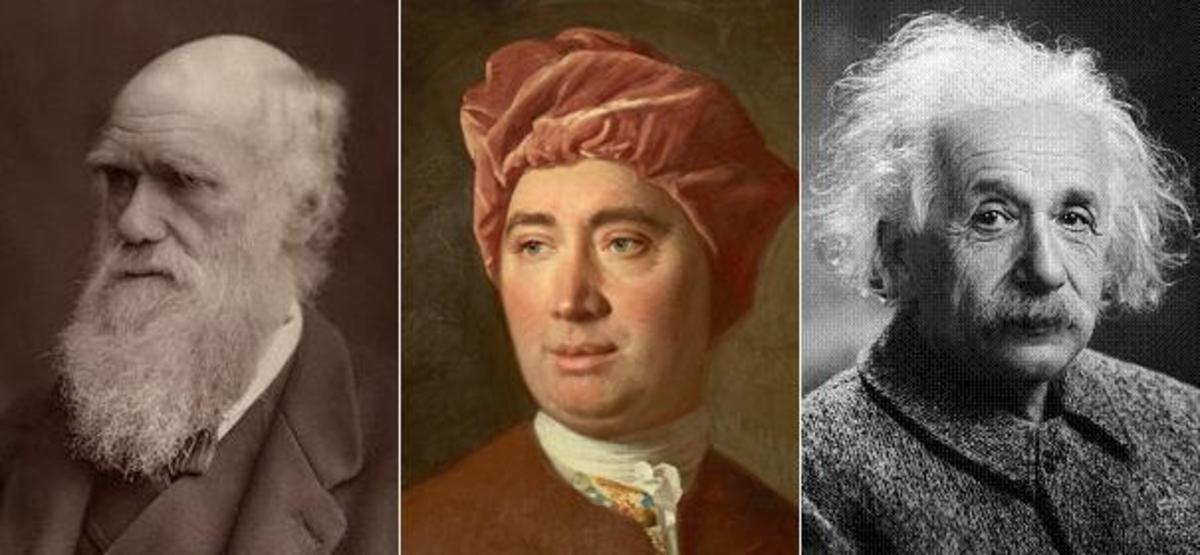Myth: All Atheists Are Agnostics

Reasonable Certainty
One of David Hume's most famous and important points is that we can't be certain of anything. How do I know that the cereal I had for breakfast today won't be poisonous tomorrow? Because I've had that cereal countless times for its nutritional value and in the past it has always worked. How do I know that what worked in the past can be expected to work in the future, though? Well, in the past things that worked in the past have tended to work in the future. That is to say, I have no further explanation. All I have is the constant conjunction of these elements. But to explain constant conjunction I only have constant conjunction itself, ad infinitum. Hence Hume's conclusion that we can't be certain of anything. The sun might not rise tomorrow, blue may turn red tomorrow, what used to be nutritious might suddenly be poisonous, and so on.
The solution is, of course, reasonable certainty. It may be impossible to have absolute certainty of anything, but one can be reasonably certain of things. All that is required for reasonable certainty is that there be no good reason for doubt. So if the cereal I have for breakfast has always been nutritious and absolutely nothing has changed, then it's reasonable to assume it is still nutritious and unreasonable to doubt it. If, however, I am aware that Kelloggs has been taken over by North Korea, then I have reason to believe the cereal may become poisonous. Without a good reason to doubt, I can be said to have certainty, even if it can never be given a perfect foundation. I can be reasonably certain that the sun will continue to rise, that blue will remain blue, that coffee will continue to taste like coffee, and so on.

Overdemanding Definitions
Once, upon returning from a meeting of several prominent atheists, Hume declared he had never met an atheist in his life. This was especially curious considering Hume himself had a reputation as an atheist. But it is a common position and myth that atheists are really agnostics, or worse, closeted believers. For instance, Niels Bohr was found to have a horseshoe hanging in his office. A fellow physicist asked, "Surely you don't believe in this?" And Bohr replied, "Of course not; but I hear it works even if you don't believe in it." This is perhaps the way some think of atheists. People who believe in their own way, thinking they don't. What Hume doubtless meant is that there is no-one with absolute certainty that there is no God. Hume should have known better.
If you define a pizza as "a flattened wad of cooked dough topped with tomato sauce, cheese, and meat," then any pizza without cheese or meat is not a real pizza. This is a common attitude in groups. "He's not a real communist, for he owns a car!" or "He's not a real Christian, as he believes in works over faith!" This is a problem of overdemanding definitions. And the demand that an atheist have absolute faith is overdemanding.
If an atheist is defined as someone with absolute certainty in not-God, an atheist is a man of faith. It's built into this definition that the atheist be a hypocrite. An atheist chastises others for having faith and yet has faith himself. In reality, most if not all atheists deny themselves absolute certainty. What atheists do have is reasonable certainty that there is no God. They are as certain there is no God as that the sun will continue to burn tomorrow, that it wasn't gremlins that broke the motor of their cars, that cereal will continue to be nutritious. Should some information be granted to them that makes this certainty less reasonable, then they may cease to be atheists. Obviously Jesus's many appearances in burnt toast, the existence of this universe, and the power of prayer has given them no cause to doubt their reasonable certainty. Agnostics, by comparison, do not even hold reasonable certainty.

Fascination
This short article was written in response to this eloquent hub by HubFriend Ben Zoltak. It's recommended reading. He expresses difficulty accepting that there are 'real' atheists. There may indeed be atheists of the type that have faith in no-god. Absolute faith happens, of course. But I don't think, for the reasons given above, that atheists must have absolute certainty or faith. Ben's appeal for less certainty and openness to a broader picture is a benevolent one and hopefully an appeal I've shown to be compatible with atheism. Atheism is not about certainty, but about reasonableness. Atheists are free to be fascinated by ideas of all sorts. It's through fascination that we discover just how reasonable our certainties are; through apathy that we eat the North Korean corn flakes. Think about it.
If you enjoyed this article, you may like...
- Active Atheists
Jane Bovary's look at the New Wave of Atheism. - Thoughts on Religion and Violence
How right are skeptics like Hitchens and Dawkins, when they imply religion is the cause of history's atrocities?








